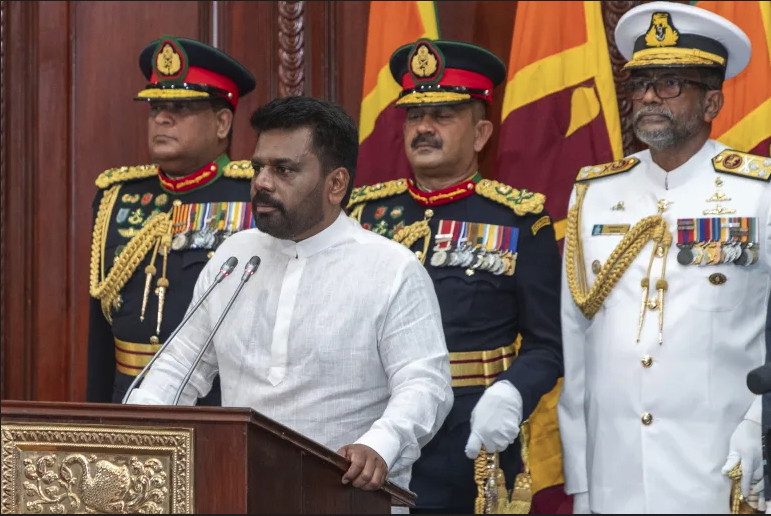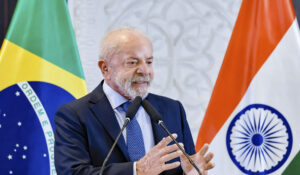
Published 23/09/2024 16:56 | Edited 23/09/2024 17:56
Anura Kumara Dissanayaka, 55, was declared the winner of Sri Lanka’s presidential election held on Saturday (21), with 42.3% of the vote, the electoral commission announced on Sunday (22). The leader of the Janatha Vimukthi Peramuna (JVP), a communist and Marxist-Leninist party, defeated the leader of the opposition in Parliament, Sajith Premadasa (32.7%), and the incumbent president, Ranil Wickremesinghe (17.2%), who has already conceded defeat. Dissanayake counts the revolutionary Che Guevara among his heroes.
Dissanayaka’s victory comes at a crucial time for the country, which is facing one of the worst economic crises in its history. Since 2022, Sri Lanka has been living under austerity measures imposed as part of an economic rescue plan agreed with the International Monetary Fund (IMF), following a series of protests that led to the resignation of former President Gotabaya Rajapaksa, who fled, leaving the country under Wickremesinghe’s rule. The crisis has caused rampant inflation, shortages of fuel, food and medicine, and a collapse of the financial system.
In his first speech after the results were announced, Dissanayaka declared that his victory “is a victory for all Sri Lankans.” He promised to rewrite the country’s history and improve the quality of life of the population, which has been severely affected by the crisis and austerity policies. Although he promised to maintain the recovery plan negotiated with the IMF, Dissanayaka said he intended to renegotiate some points to alleviate the impact on citizens’ purchasing power.
Promise of political renewal
Dissanayaka, a former student leader during the JVP’s violent uprisings in the 1970s and 1980s, has been a prominent figure in Sri Lankan politics in recent years, despite the JVP having historically played a peripheral role with less than 4% of the vote during the last parliamentary elections in 2020. Known for his anti-corruption rhetoric, he has vowed to tackle the traditional political system, often dominated by family dynasties such as the Rajapaksa.
Since his rise to popularity, Dissanayaka has been described as a former Marxist for softening some policies, saying he believes in an open economy and is not outright opposed to privatization.
The election reflects the population’s weariness with the ruling political class, especially with Wickremesinghe, who, although he managed to partially stabilize the economy with the support of the IMF, was harshly punished at the polls for implementing measures that worsened poverty and social inequality.
Challenges for the new president
Sri Lanka, home to more than 22 million people, is facing a devastating economic situation, with more than a quarter of the population living below the poverty line, according to the World Bank. Dissanayaka’s promise to renegotiate the IMF agreement has brought hope to many Sri Lankans, but the challenges facing the new president are immense. In addition to economic recovery, he will have to deal with restoring public confidence in the political system and addressing growing demands for transparency and social justice.
Anura Kumara Dissanayaka’s inauguration ceremony took place on Monday morning (23), when he officially assumed the presidency with the challenge of leading Sri Lanka on a path of recovery and stability.
“I will do my best to completely restore people’s trust in politicians,” Dissanayake said after taking the oath. “I am not a magician,” he added. “There are things I know and things I don’t know, but I will seek the best advice and do my best. For that, I need everyone’s support.”
Source: vermelho.org.br

